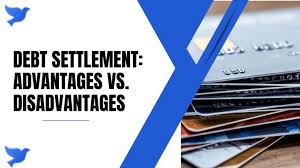Debt can feel overwhelming, especially when multiple debt relief payments are due at different times and with varying interest rates. For many individuals struggling to manage their finances, debt consolidation offers a viable solution to regain control and reduce financial strain. This article delves into what debt consolidation is, its benefits, different methods to consolidate debt, and essential considerations before making a decision.
What is Debt Consolidation?
Debt consolidation is the process of combining multiple debts into a single loan or payment. This approach simplifies your financial situation by allowing you to manage one monthly payment instead of several. The primary goal of debt consolidation is to reduce interest rates, lower monthly payments, and streamline debt repayment.
Benefits of Debt Consolidation
- Simplified Payments: By consolidating debts, you only need to remember one payment date and one lender, reducing the risk of missed payments.
- Lower Interest Rates: Consolidating high-interest debts (like credit cards) into a lower-interest loan can significantly reduce the total amount paid over time.
- Improved Credit Score: Successfully consolidating and paying off debt can positively impact your credit score by reducing your credit utilization ratio and improving payment history.
- Reduced Monthly Payments: Debt consolidation often results in lower monthly payments, making it easier to manage your budget and avoid financial stress.
- Access to Financial Education: Many debt consolidation services offer resources and education, helping you better understand your finances and make informed decisions.
Methods of Debt Consolidation
There are several ways to consolidate debt, each with its own pros and cons:
- Debt Consolidation Loans: These are personal loans specifically designed to pay off existing debts. Borrowers receive a lump sum to pay off creditors, and they then repay the loan in fixed monthly installments. Interest rates can vary based on credit scores and financial history.
- Balance Transfer Credit Cards: Some credit cards offer promotional periods with low or zero interest rates on balance transfers. This allows borrowers to transfer high-interest credit card debt to a card with a lower interest rate, saving money on interest. However, it’s crucial to pay off the balance before the promotional period ends to avoid high-interest rates.
- Home Equity Loans or Lines of Credit: Homeowners can tap into their home equity to consolidate debt. These loans often have lower interest rates but come with the risk of losing your home if you default.
- Debt Management Plans (DMP): Offered by credit counseling agencies, DMPs involve working with a counselor to create a repayment plan. The agency negotiates with creditors for lower interest rates and more favorable terms. You make a single monthly payment to the agency, which then distributes the funds to your creditors.
- Debt Settlement: While not a true consolidation method, debt settlement involves negotiating with creditors to pay less than what you owe. This approach can negatively impact your credit score and may come with tax implications, but it can be a viable option for those in severe financial distress.
Considerations Before Consolidating Debt
While debt consolidation can be beneficial, it’s essential to consider the following factors:
- Credit Score Impact: Depending on the method chosen, consolidating debt can affect your credit score. For example, applying for new loans or credit cards can temporarily lower your score.
- Fees and Costs: Some consolidation methods may involve fees (like balance transfer fees or loan origination fees). It’s essential to understand the total cost of consolidation compared to potential savings.
- Commitment to Financial Discipline: Consolidating debt is not a cure-all; it requires a commitment to changing spending habits. Failing to avoid accumulating new debt after consolidation can lead to further financial troubles.
- Long-Term Strategy: Consider whether consolidation fits into a broader financial plan. Developing a budget, setting savings goals, and establishing an emergency fund are essential steps to ensure long-term financial stability.
Conclusion
Debt consolidation can be a valuable tool for individuals struggling with multiple debts and high-interest rates. By simplifying payments, reducing interest rates, and improving financial management, debt consolidation offers a pathway to financial freedom. However, it’s crucial to assess your individual circumstances and explore different consolidation options to find the best solution for your needs. With careful planning and disciplined spending, you can successfully navigate the road to financial recovery.

